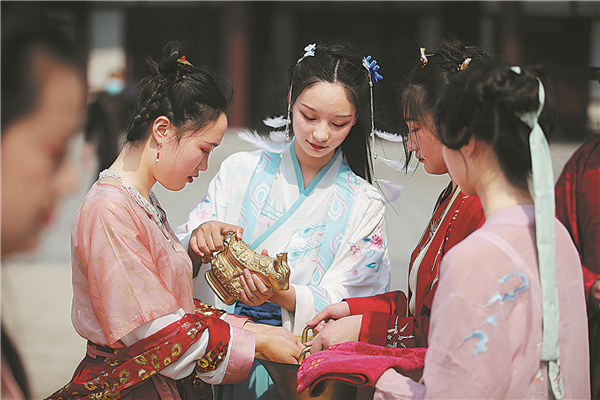Festival greets summer with traditional flair


"Back in the era of food scarcity, I was told by my parents that duck eggs could cool the fire in the spleen, and enhance my bone and muscles. On lixia, fresh duck eggs were cooked, and I was ordered to eat at least three. And my mother always picked out the most turquoise ones from a big basket for me. It is said the turquoise ones have the best nutrition," Xia says.
"I remember that I didn't like to eat egg yolks. However, my parents said that if I didn't eat the yolk, the bones of my feet would be weak, and I wouldn't be able to walk quickly. Fortunately, I listened, otherwise I might have lost the ability to jog, a routine that I love."
On the day, families in Taizhou begin cooking the summer eggs. They are usually boiled with tea leaves or walnut shells. By the time the eggshells start to slowly turn red, the delicious smell wafts up from the kitchen and fills the whole house. Tea eggs should be eaten while they are still hot. The flavor can be strengthened by the addition of some good Shaoxing rice wine, from Zhejiang's Shaoxing, and a sprinkle of fine salt.
"On days around lixia, people eat and travel with a clear theme, that is, summer and health," says Yang Xiu, a researcher at the Institute of Anthropology of Arts, which is part of the Chinese National Academy of Arts. "Similar solar terms include Start of Winter, when the yin is strong. People also seek the healthy options, but at that time they go for fish and meat to warm up the body. This is the precious wisdom accumulated by the ancients. People today may avail of greenhouse technology to break the rhythm of traditional society. But they still have to follow nature."
Lixia also has a romantic and poetic name-"drunken summer"-in Taizhou. The region has a tradition of home-brewing rice wine that stretches back centuries. Sweet rice wine is best served warm on lixia with a beaten egg and a sprinkle of sweet-scented osmanthus.



































